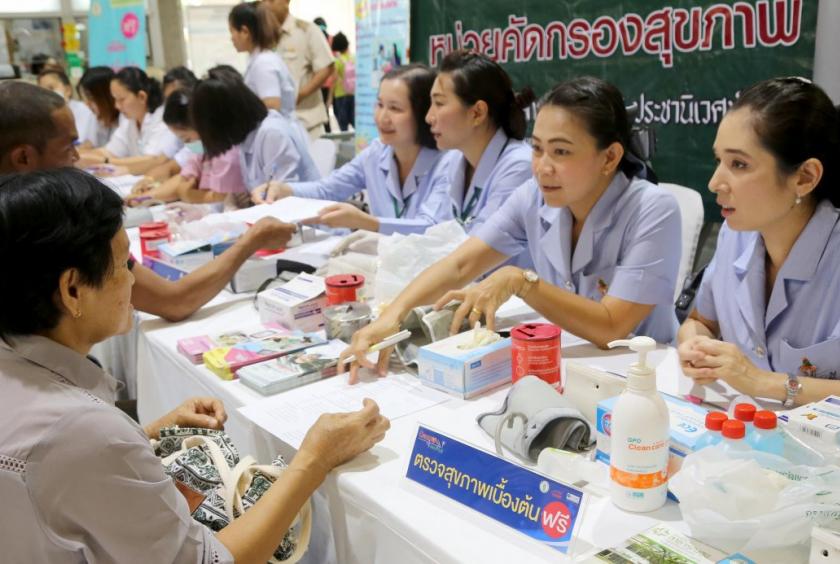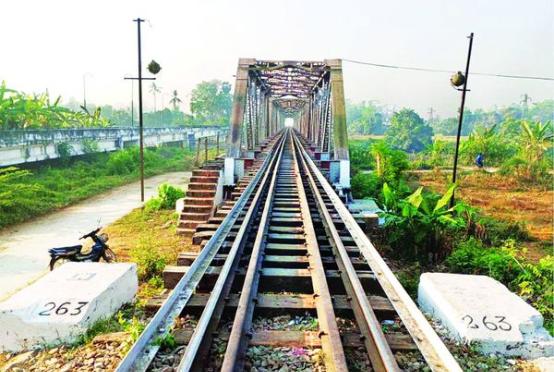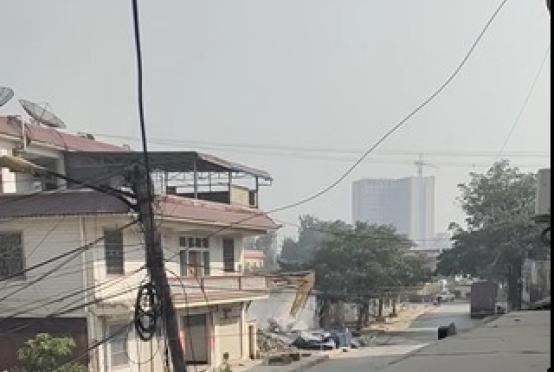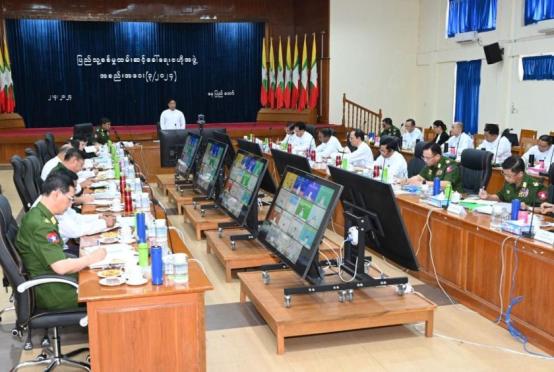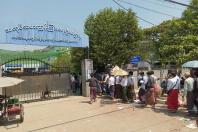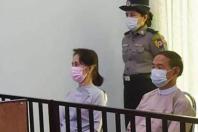Controlling the costs of medicare and increasing Thai public’s health literacy seen as critical for the survival of schemes.
JUST AS A wish for good health tops the list of New Year desires for most people, Thailand needs to pay serious attention to its healthcare policies and schemes.
Inefficient or wrong policies in the healthcare sector, after all, may adversely affect people’s lives.
Currently, most Thais are entitled to free medical service under one of Thailand’s three key state-supported healthcare schemes – the universal scheme, the social-security scheme (whose members are required to make monthly contributions) and the scheme for civil servants and family members.
However, there is no guarantee these schemes will continue, as many believe these health plans may have to be significantly changed to prevent their eventual collapse under the heavy financial burden.
“We will need to reform the country’s healthcare sector because by now [late 2018], these three schemes have already used up the annual Bt330 billion budget,” Somchai Jitsuchon said recently in his capacity as member of the national reform committee on public health. A comprehensive study suggests the cost of the schemes will grow significantly to Bt394 billion in 2022 and Bt652 billion in 2037 if they are not reformed soon.

The most expensive scheme is the universal healthcare benefit, which offers most medical services free to 48.8 million Thais and uses up about Bt126 billion per year.
The social security scheme covers 14.8 million beneficiaries, using up an annual budget of about Bt50 billion. The scheme for civil servants and their families, meanwhile, covers the lowest number of people – just 4.9 million – but uses Bt73 billion per year – the highest amount when calculated on a per head basis.
An analysis by the Fiscal Policy Research Institute Foundation showed that all three schemes have been struggling with budget constraints, despite sizeable yearly allocations. For instance, the scheme for civil servants was allocated just Bt60 billion a year, but it actually used up Bt62.44 billion in 2014, Bt66 billion in 2015, Bt71 billion in 2016 and Bt73 billion in 2017.
Somchai said the government could consider both tax and non-tax measures to cover the growing healthcare cost, particularly in relation to the much-vaunted universal healthcare scheme.
He said the government could consider increasing value-added tax or earn revenue from sin tax, excise tax or land and building tax – or just restructure income tax.
“Or, we could go for a co-payment system, like introduce a mandatory insurance of Bt100 per year per person, or charge Bt50 for each medical visit [with exemptions granted to low-income earners], ask the private sector to contribute or raise donations,” Somchai said. However, he added, every measure has its pros and cons, and policymakers should make the decision carefully.
Nimit Tien-udom, the director of Aids Access Foundation, said he would not object to co-payment if it was necessary and took the form of an advance payment. However, he said, before the government opts for this, it should first improve its budgeting methods.
“How come the defence budget is several times larger than the budget allocated to healthcare?” he asked.
He said the government should also work harder in controlling costs via efficient drug-patent management and negotiate better prices with suppliers.
In the run-up to the elections, politicians too have been voicing their stance on the universal healthcare scheme. At a recent seminar, Pheu Thai Party secretary-general Phumtham Wechayachai said his party would not scrap the scheme, which was launched by its predecessor Thai Rak Thai party.
Meanwhile, Future Forward |Party leader Thanathorn Juangroongruangkit and Democrat Party leader Abhisit Vejjajiva have both insisted that the universal healthcare scheme is not collapsing under the weight of its financial burden.
“You should notice that not all hospitals participating in the scheme are operating at a loss. Problems are only occurring at some hospitals,” Abhisit said.
Thanathorn, meanwhile, said policymakers should not cite “the lack of budget” to shake the core of the universal healthcare scheme. “We have the resources to turn Thailand into a welfare state,” he said.
However, Abhisit and Thanathorn do not agree on whether all three schemes should be merged. While Abhisit is against the idea, Thanathorn supports it, saying merging the three would ensure equality.
Rapeesupa Wangcharoenrung, whose work panel focuses on budget sustainability and adequacy, said Thailand would need to come up with measures to sustain its healthcare schemes both in the short- and long-term.
“For example, we need to increase health literacy so people can take better care of their health. That’s the only way we adjust demand,” she said.
She added that the country would also need to address funding issues on the supply side and try to improve cost efficiency.
Rapeesupa said medical service providers could also improve their efficiency by sharing resources, such as laboratories and specialists. She also said that hospitals should improve their budgeting.
“For the long run, we will need to discuss funding options because it is clear that the cost of these schemes has been rising on a yearly basis even though they have not increased the services offered to the beneficiaries,” Rapeesupa said.

